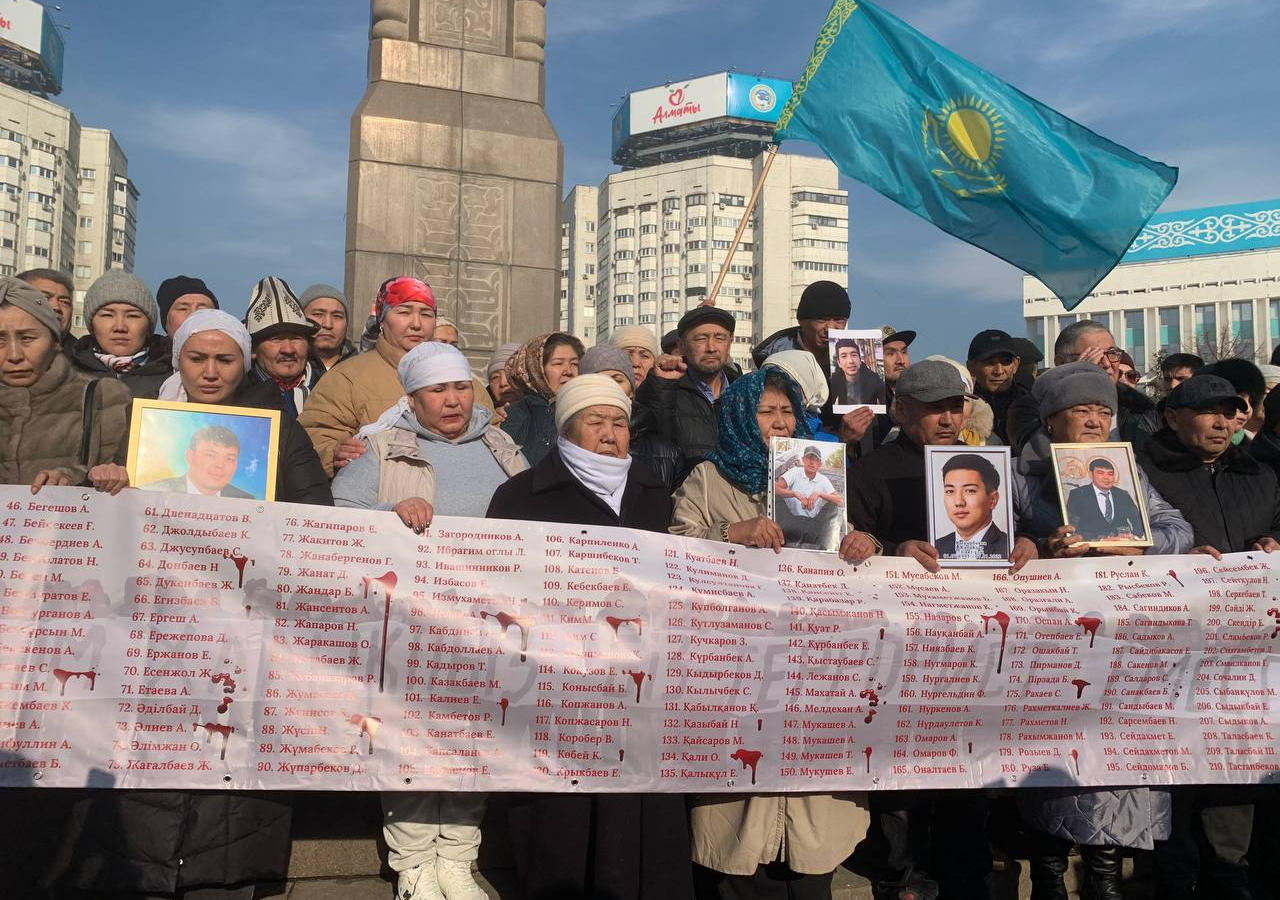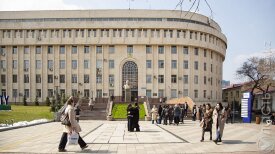Around three dozen people gathered in Almaty’s Republic Square on January 5 to mourn the victims of Qandy Qantar (Kazakh for ‘Bloody January’, the violent repression of countrywide protests in 2022). At least 238 people were killed in the clashes with the security forces. Their relatives held a banner with the names of the victims and asked for justice.
Six activists of the Oyan, Qazaqstan! movement were detained in a wave of arrests between December 25 and January 3. Three activists were arrested for holding an unsanctioned rally on Independence Day (December 16) in Almaty’s Republic Square. Fellow activists then rallied for their release on January 3 and were subsequently arrested as well. The activists were put in administrative detention for 15 days each.
NEF Qazaqstan, the local branch of a Turkish real estate company, defaulted on its bonds traded on AIX, the Astana International Exchange, a public disclosure document said on December 30. This is the first time that a company fails to meet its repayment obligations on AIX, which was established in 2017.
The licensing agreement that allowed Kazakhstan’s operator “tvcom” to broadcast Russia’s Pervyi Kanal expired on December 31 because of a long-standing debt in copyright payments, a representative of the channel told Vlast on January 3. According to Pervyi Kanal, the operator “tvcom” owes Pervyi Kanal copyright payments for the last two years. The operator, which broadcasts to around 1.5 million households in Kazakhstan, had earlier said that the expiration of the agreement with a range of Russian channels was in line with the decision to “gradually reduce the share of foreign news channels”.
The government increased quotas on January 4 for accepting displaced persons and Qandas (ethnic Kazakhs formerly living abroad) by 5.8% for 2024. Most permits will be issued for relocation to the northern regions of the country. People migrating to Kazakhstan through the Qandas program have found it difficult to settle in.
National oil and gas company Kazmunaigas said on January 5 that it plans to increase its own natural gas production to 6.7 billion cubic meters by 2030. That would be around three times the current annual production (not accounting the three largest oil and gas fields, where Kazmunaigas is only a shareholder).
Talks between trade union and government representatives held on December 29 to resolve an ongoing strike of oil workers in the western Mangistau region were unsuccessful, according to the workers. Hundreds of workers at the service company West Oil Software went on strike on December 11 over the conditions of their contracts, demanding that their company be merged within Kazmunaigas.
Workers at KMG-Security, the security and safety subsidiary of Kazmunaigas, demanded that the company’s management and the leadership of the trade union be fired on December 29. The workers said they are dissatisfied with work conditions. They said they would go on strike should their demands fall on deaf ears.
The ministry of tourism and sport scrapped the so-called Tourist Tax, media reported on January 3. The tax, which applied to temporary visits, was introduced about a year ago. From January 9, tourists will no longer have to pay a Tourist Tax for their accommodation.
Поддержите журналистику, которой доверяют.








